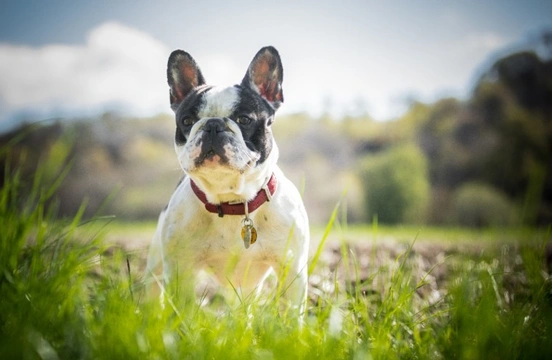
Frequently asked questions about skin cancer in dogs
Hearing your vet say the words “your dog has cancer” is always a heart-stopping moment for dog owners, regardless of how empathically your vet breaks the news or if you expected this to be their diagnosis.
If your vet has just told you that your dog has skin cancer, it can be hard to think, or to take in the rest of the information that your vet provides for you properly; and later on when you’ve begun to calm down a little and think a little more clearly, the chances are that lots of questions will occur to you that you didn’t think to ask at the time.
Every dog, and every presentation of cancer itself is unique, and you will need to talk to your vet about your own dog and their skin cancer to get the specific and personal answers that you need; and your vet will expect this, and know that you are likely to want to come back to them later on to find out more.
However, there are a number of universal questions about skin cancer in dogs that owners tend to think of after a diagnosis is made, and that some dog owners ask in general just to make sure that they’re doing everything they can to protect their dog’s health for the future.
With this in mind, this article will tell you some of the most frequently asked questions about skin cancer in dogs, and provide their answers. Read on to learn more.
What is skin cancer?
Skin cancer is not one specific form of cancer, but a generic name given to any one of several different malignancies that can affect a dog’s skin.
There are three different types of canine skin cancers, which are malignant melanomas, mast cell tumours, and squamous cell carcinomas respectively.
They each have different potential causes (and you may never know what the cause was for sure) presentations, and traits, and your vet will identify which type of skin cancer your own dog has as appropriate and discuss it with you in more detail.
How common is skin cancer in dogs?
Taking into account the three different types of cancer mentioned above altogether, skin cancer is in fact the most common type of cancer diagnosed in dogs overall. This means that a diagnosis of skin cancer at some point in your dog’s lifetime is more likely than the diagnosis of any other type of cancer.
Is skin cancer in dogs always caused by sun exposure?
Skin cancer in both dogs and people is something that most of us strongly correlate with too much unprotected sun exposure and particularly, sunburn.
It is certainly true that sunburn and sun exposure can and do directly cause many cases of skin cancer in dogs, but not all of them; in some dogs and presentations, genetics plays a part, other factors have an influence, and other root causes may be responsible instead.
However, sunburn in dogs is the leading cause of canine skin cancer, causing or contributing to many cases, and being cumulative over a lifetime.
How would I know if my dog had skin cancer?
The appearance of skin cancer in dogs can be really variable depending on what type of cancer is involved, how advanced it is, and even what your dog’s skin and coat is like, which can dictate how it looks and how obvious it is.
Lumps, bumps, wart-like growths, rough areas, patches of discolouration and almost anything else you can think of appearing or looking different on your dog’s skin might potentially indicate skin cancer, but all of them might indicate something else entirely that might well be incredibly minor, so do not think the worst; just ask your vet to take a look.
How serious is canine skin cancer, and can it be treated?
Again, there are lots of variables involved, in terms of the different types of skin cancers in dogs and individual dogs themselves for there to be a universal answer on the prognosis for any given dog.
However, the good news if your dog is diagnosed with skin cancer is that skin cancer is one of the types of cancer that has the greatest number of potentially viable treatment options, and one with the highest recovery rates overall compared to most other types of canine cancer.
There are no guarantees of course, but skin cancer often has a very good prognosis and with the appropriate treatment, dogs often make a full recovery.
Can I prevent my dog from getting skin cancer?
You cannot always prevent skin cancer in dogs because genetics may play a part in some cases, and you may never know for sure why your dog got skin cancer. Plus, even if you’re really vigilant about protecting your dog from the sun and ensuring they never get sunburn, you cannot prevent sun exposure entirely!
That said, taking steps to ensure your dog never gets sunburn, never has to be outside in full sun without being able to go into the shade if they wish, and using protective products if needed and being vigilant about checking their skin for any problems can all help.



